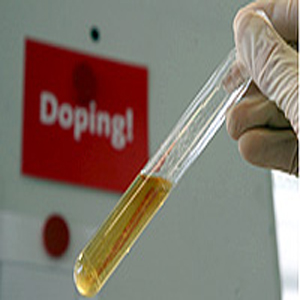THE Professional Footballers’ Association (PFA) are opposing stringent new drug-testing rules that are similar to those imposed on Britain’s Olympic athletes.
Under the new code of the World Anti-Doping Agency (WADA), a pool of 30 elite players may be forced to undergo up to five tests a year on top of those carried out after matches.
But PFA chief executive Gordon Taylor said the players’ union opposed some of the new regulations.
He said: We feel that to invade the privacy of a player’s home would be a step too far.
“If we complain about anything to do with drug-testing people think we might have something to hide, but football’s record is extremely good and there has been a virtual absence of any performance-enhancing drugs over decades.”
The move is to bring sports such as football into line with Olympic athletes, who must provide details of their location for an hour each day, including holidays.
Taylor said: “We do appreciate that football is a major spectator sport and we wish to co-operate, but football should not be treated in the same way as individual sports that do have a problem with drugs, such as athletics, cycling and weightlifting.
“For most of the year, the whereabouts of players is always known – either at their training ground or matches.”
Under the WADA code, missing three tests in an 18-month period will constitute an anti-doping violation.
It is the same rule that led to Britain’s Christine Ohuruogu being banned for a year in 2006 before she returned to win the world and Olympic 400 metres titles.
Manchester United and England defender Rio Ferdinand missed the 2004 European Championship while serving an eight-month ban for failing to show up for a test at his club’s training ground.
The Football Association insisted the details of the new drug-testing policy had not been finalised.
An FA spokesman said: “The introduction of a national testing pool in each country is a requirement of the WADA code, but there are still discussions to be had between the FA and UK Sport on the size, composition and testing requirements for English football’s pool.
“To be clear, these details have not yet been defined, and the FA will be guided by FIFA’s view as our international governing body.
“We also want the PFA to be involved in these discussions.”

